-in-nepal-lf.tmb-768v.jpg?Culture=en&sfvrsn=7a4d7c1c_2)
Interventions
Fachkaluwa Village, Dang, Nepal: Female Community Health Volunteer Bandhya Chaudhary visits Deukala Oli, 46, who has had LF in her left leg for six years, to consult and give her the annual dose of medicines. A mother of two sons, she stills farms actively despite the pain. She says the medication helps with her pain, and has prevented her condition from worsening.
WHO relies on a diverse range of approaches to advance the global NTD agenda. This package of interventions includes the formulation of strategic, technical and normative guidance, the development of derivative tools to strengthen capacities of health staff, the implementation of five core strategies to decrease the burden of disease, the management of operations enabling programmes to function, and steering operational research in support of scientific and technical advancement. As highlighted in the NTD road map for 2021–2030, the fight against NTDs require concerted and cross-sectoral action.
Approaches taken to control, eliminate and eradicate NTDs
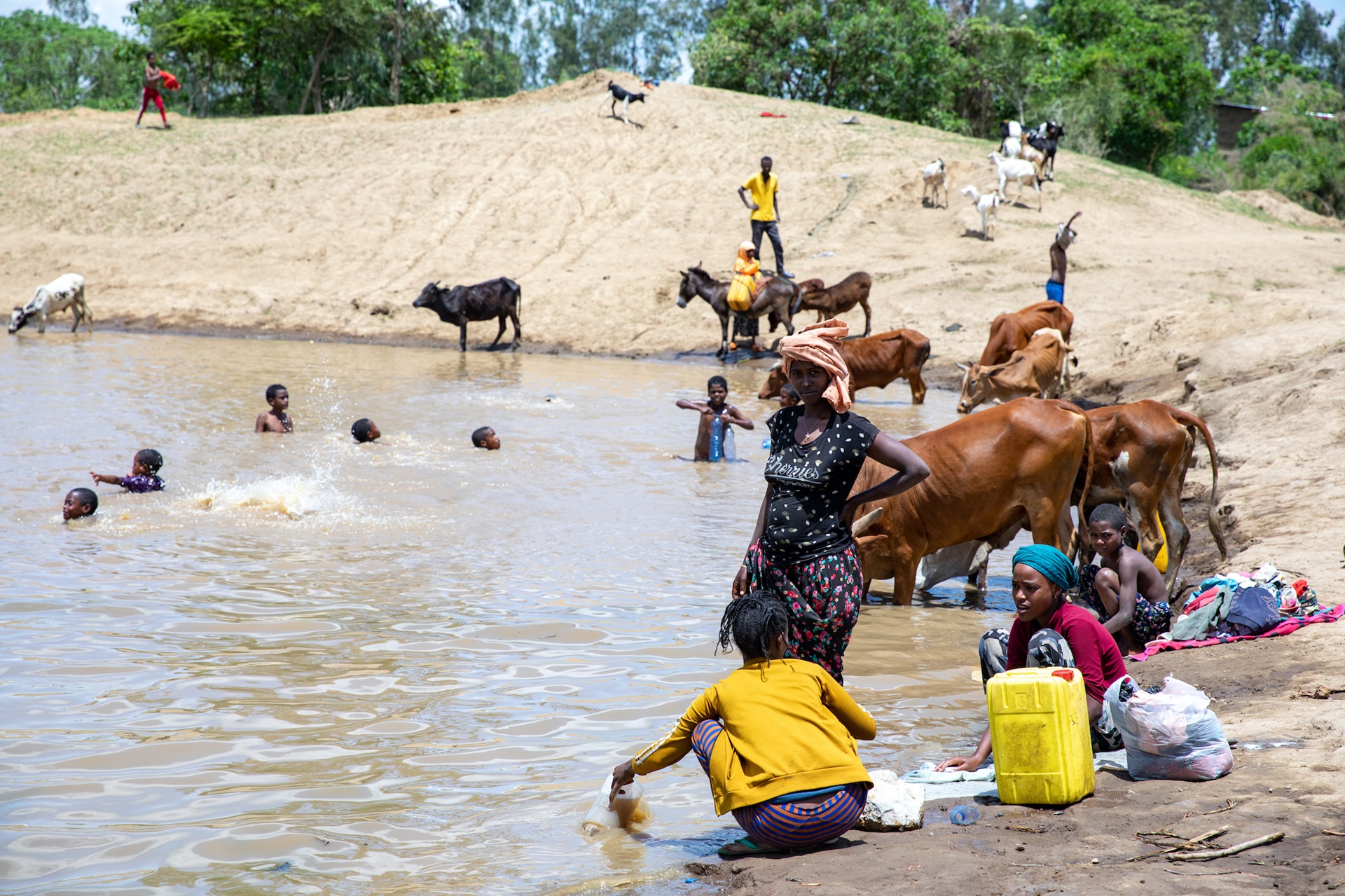
The manmade dam in Keranso, Shone Woreda in Hadiya Zone traps water from the previous rainy season. The pond is also home to freshwater snails that host schistosomiasis, otherwise known as bilharzia that may affect both humans and cattle.
Intervention strategies
WHO recommends five core strategic interventions to accelerate the prevention, control, elimination and eradication of neglected tropical diseases (NTDs): innovative and intensified disease management, preventive chemotherapy, vector control, veterinary public health, and provision of safe water, sanitation and hygiene (WASH)
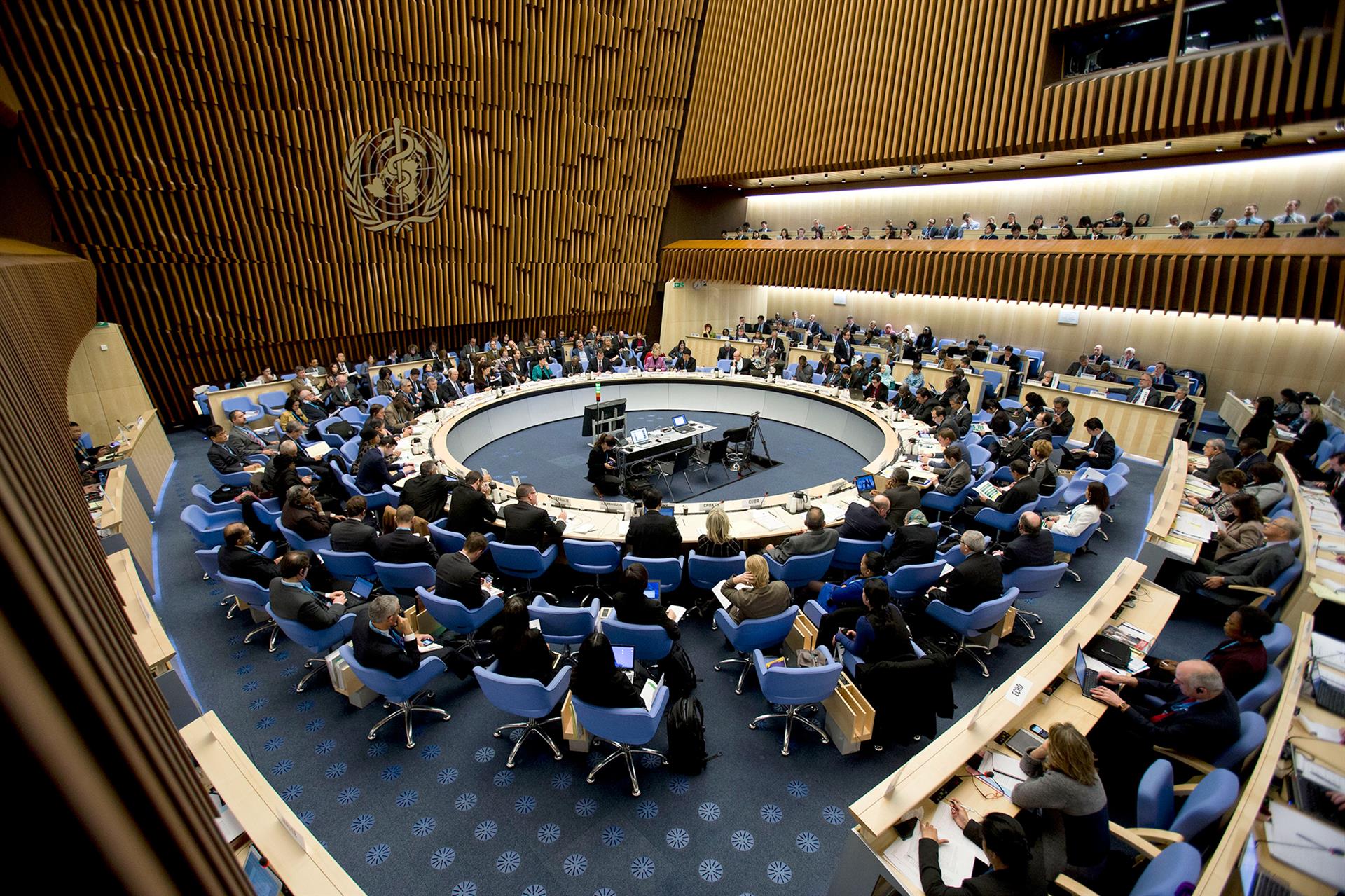
Strategic and technical guidance
WHO relies on the advice of global experts to formulate strategic policies and technical recommendations that are then proposed to Member States. The Strategic and Technical Advisory Group for Neglected Tropical Diseases (STAG-NTD) is the main body advising WHO on the prevention, control, elimination and eradication of 20 diseases and disease groups.
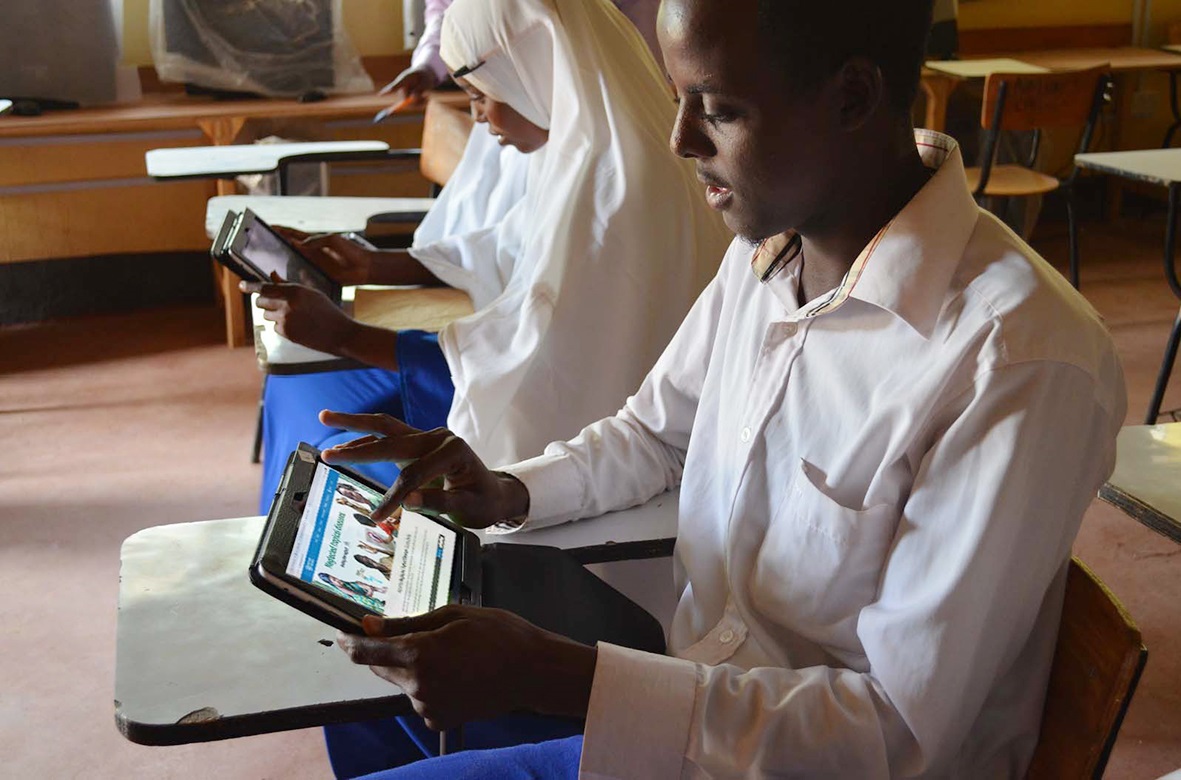
Students use tablets to study NTD online courses in Dadaab, Kenya.
Capacity building
Strengthening the capacity of national health systems will ensure delivery of neglected tropical disease (NTD) programmes through existing infrastructures, improve the sustainability and efficiency of interventions against NTDs, and guarantee that patients have equitable access to all aspects of treatment, care and support.
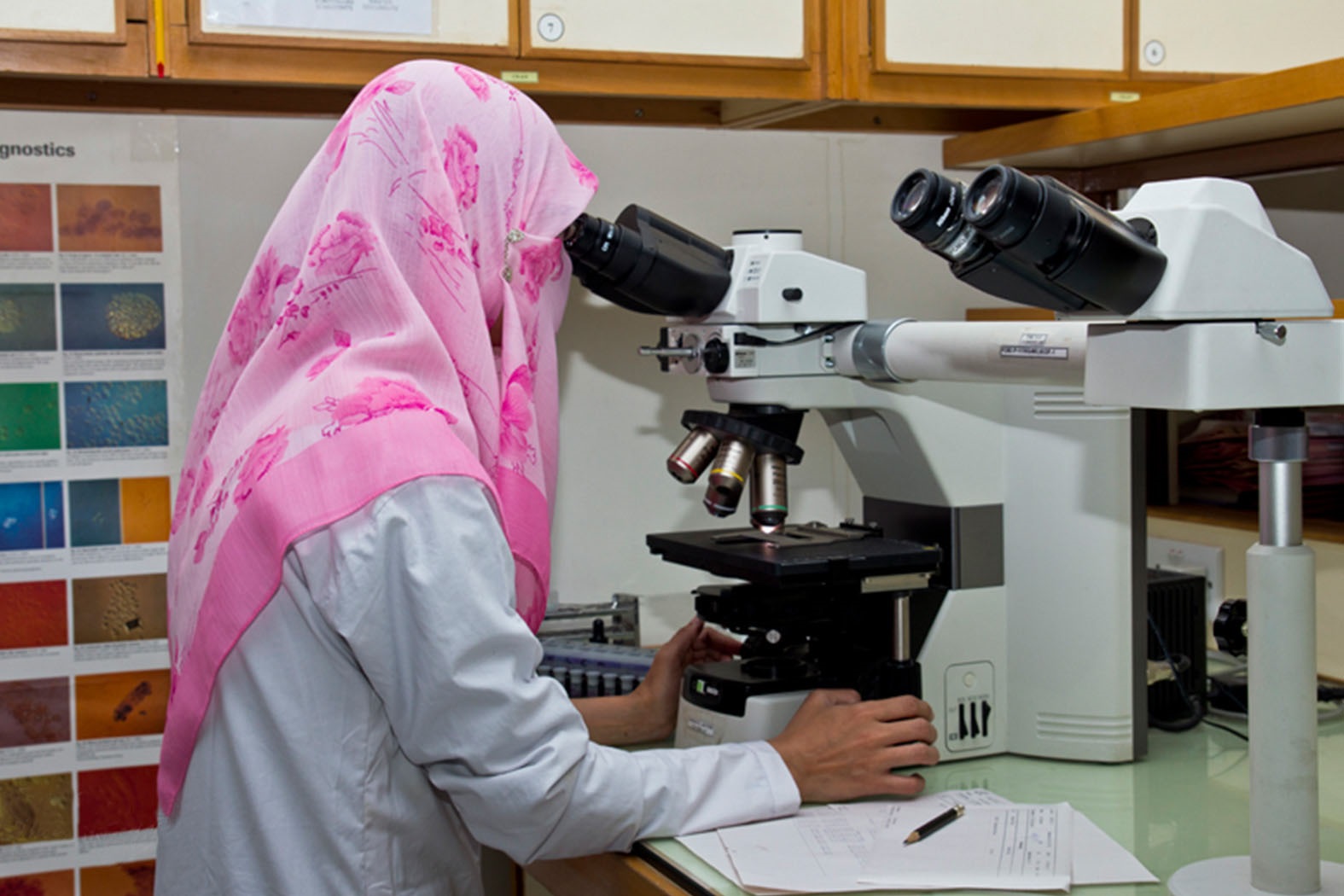
A lady lab technician is performing research and technology work in karachi, Pakistan.
Research
Research, development and innovation are fundamental enablers of programmatic progress for all NTDs. Adequately structured operational and implementation investigations, including community-based and applied research, are essential for building a solid foundation on which effective interventions can be designed and delivered.
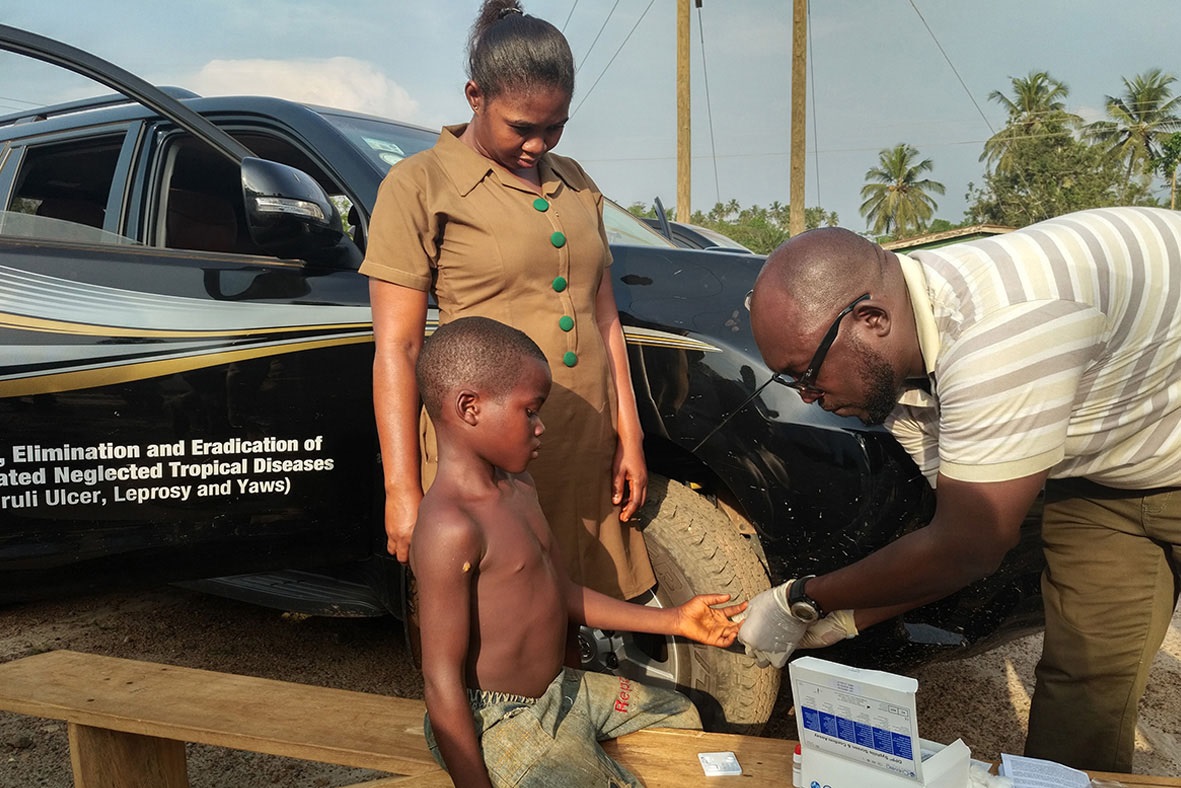
Control, Elimination and Eradication of the skin Neglected Tropical Diseases
Operations
WHO’s Department of Control of Neglected Tropical Diseases takes care of several activities that enable the smooth functioning of NTD programmes at country level. These activities include the management of donated medicines and other consumables to WHO by manufacturers, and their supply to end-users; and quality assurance of health products.







